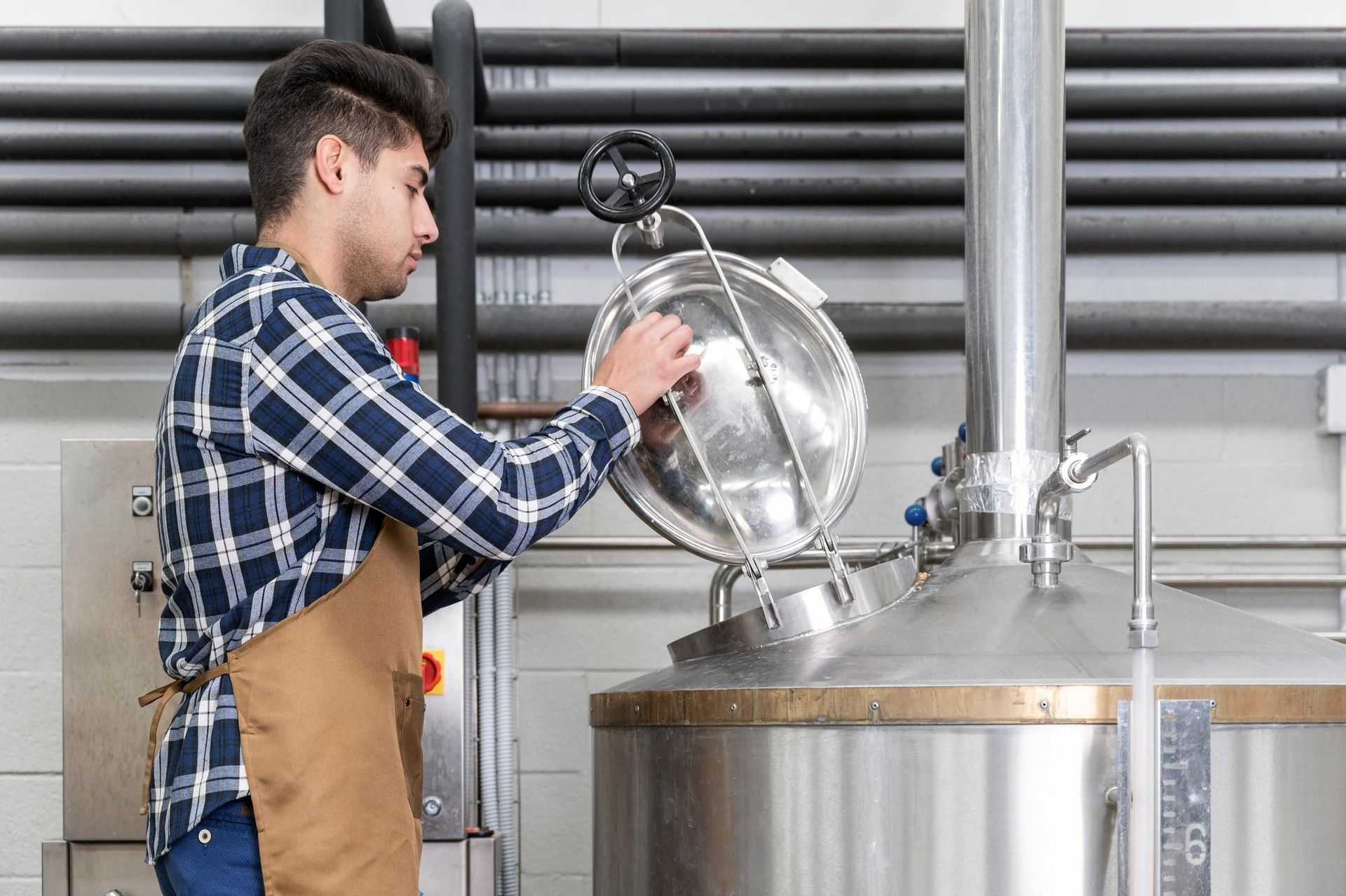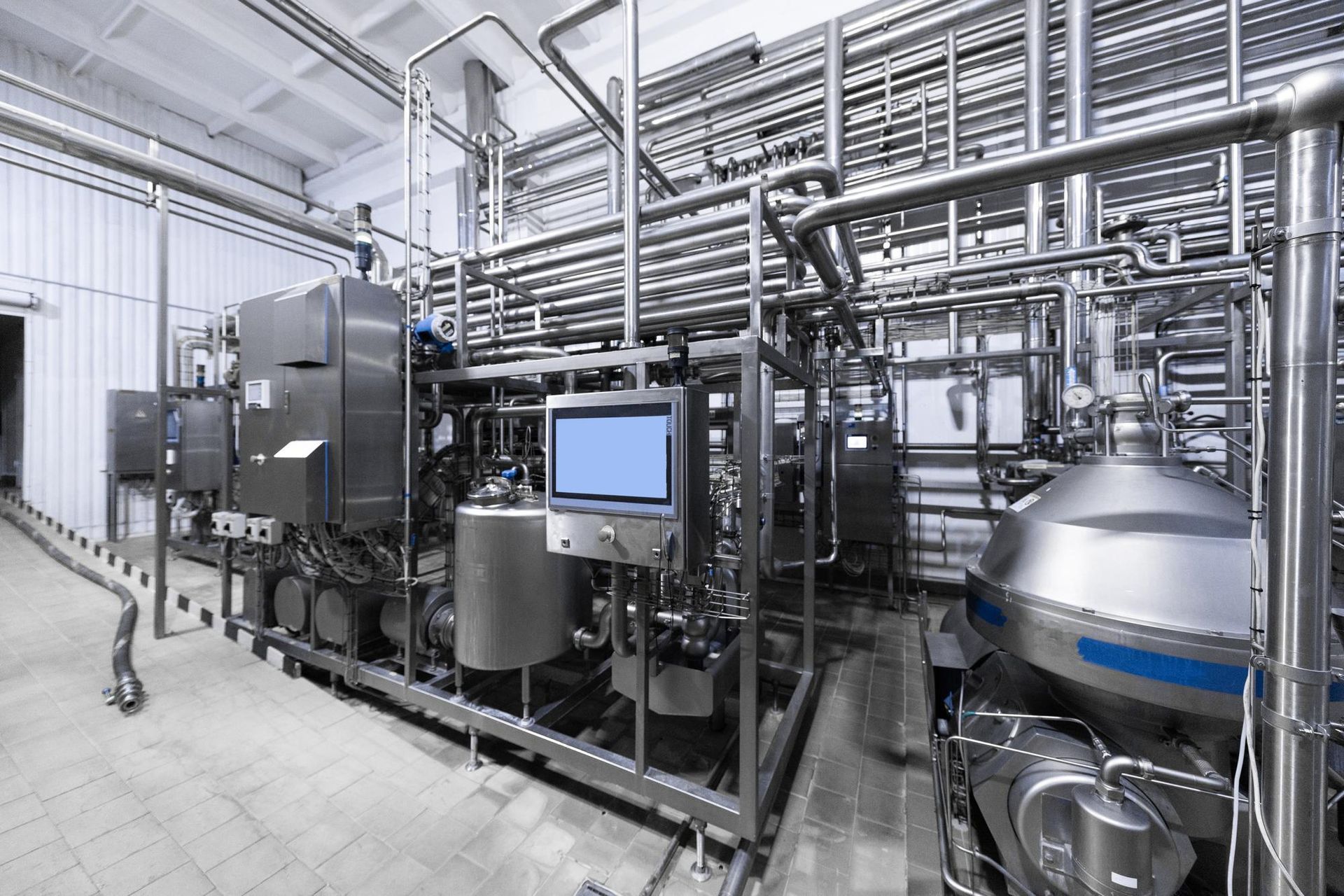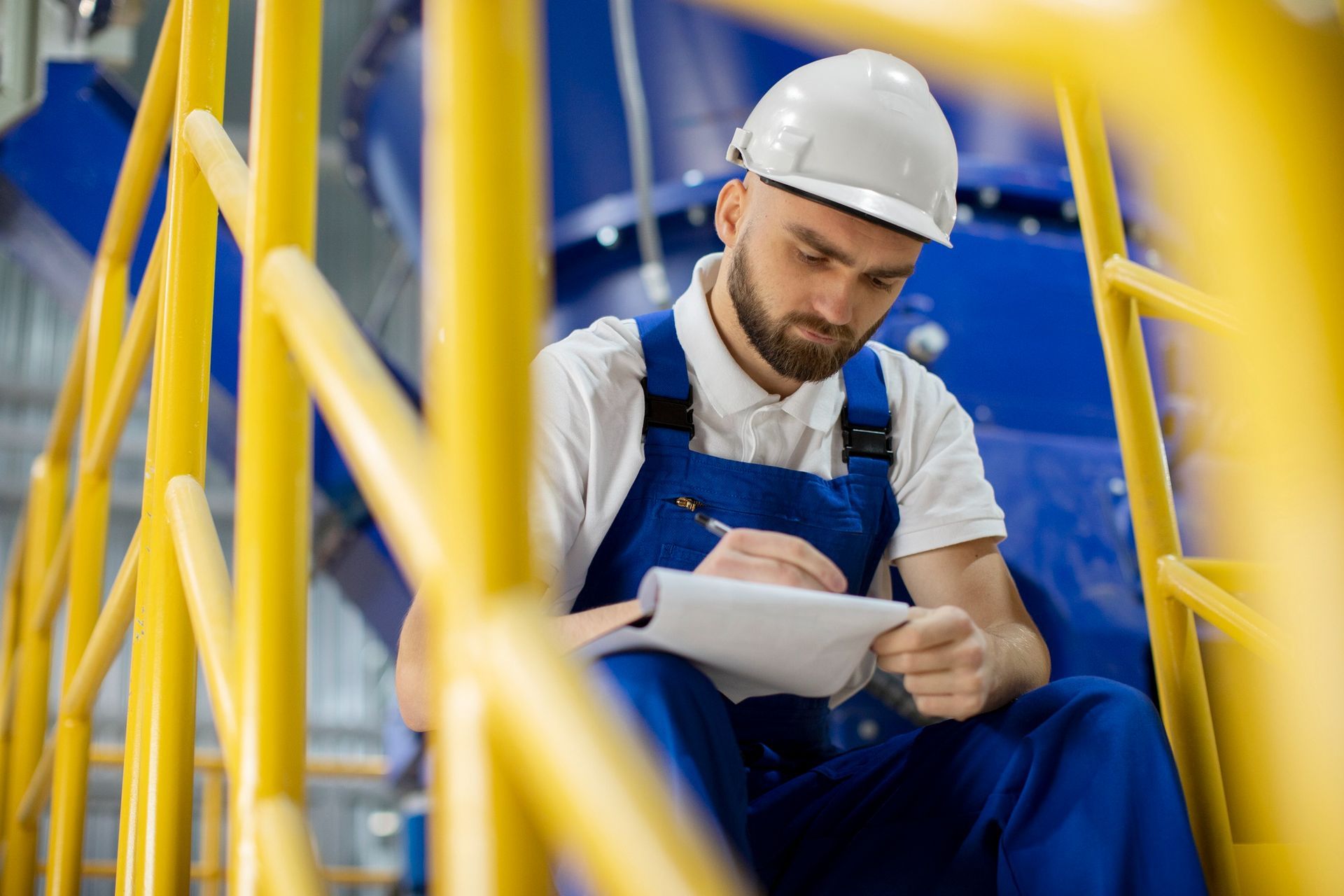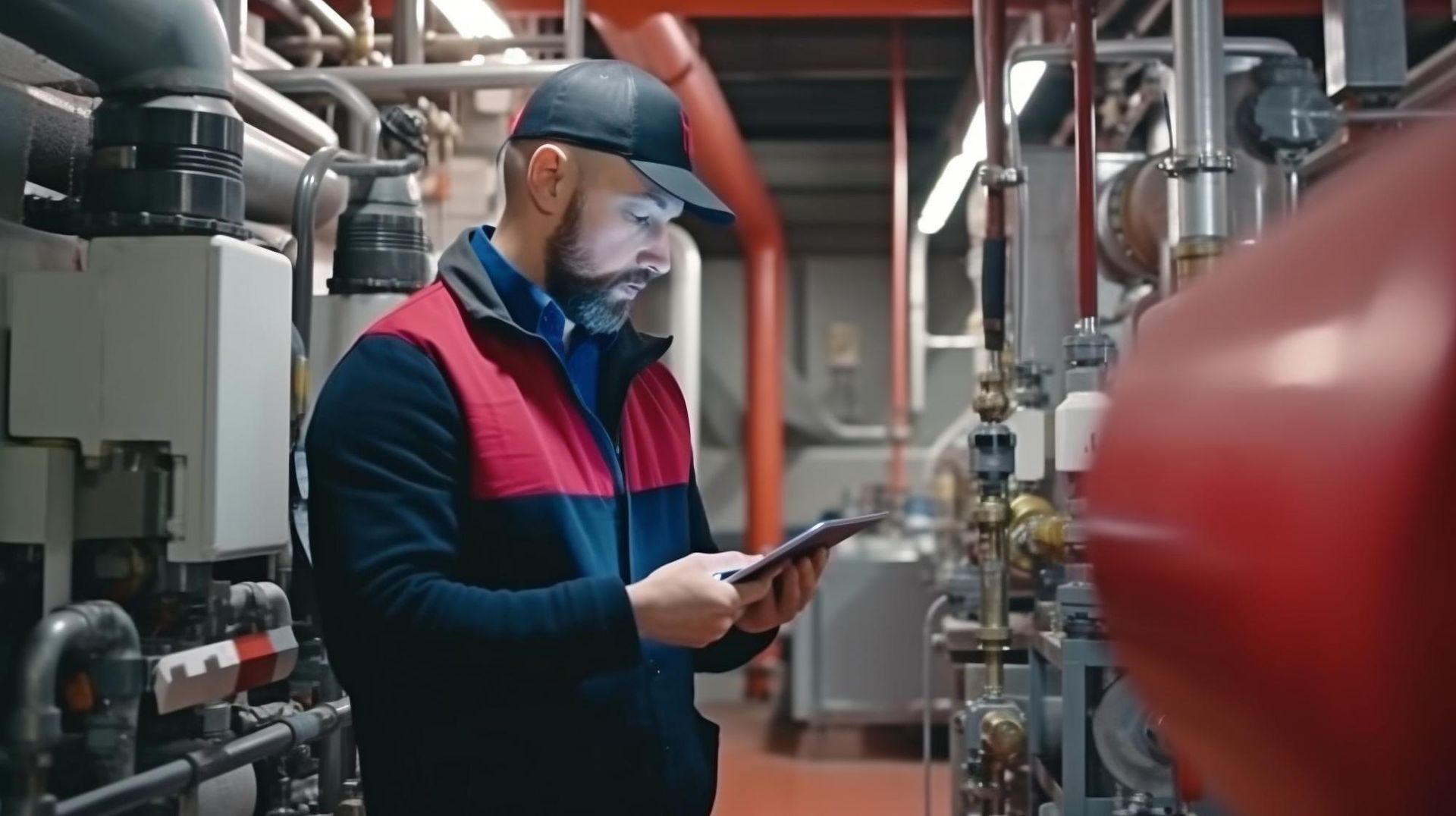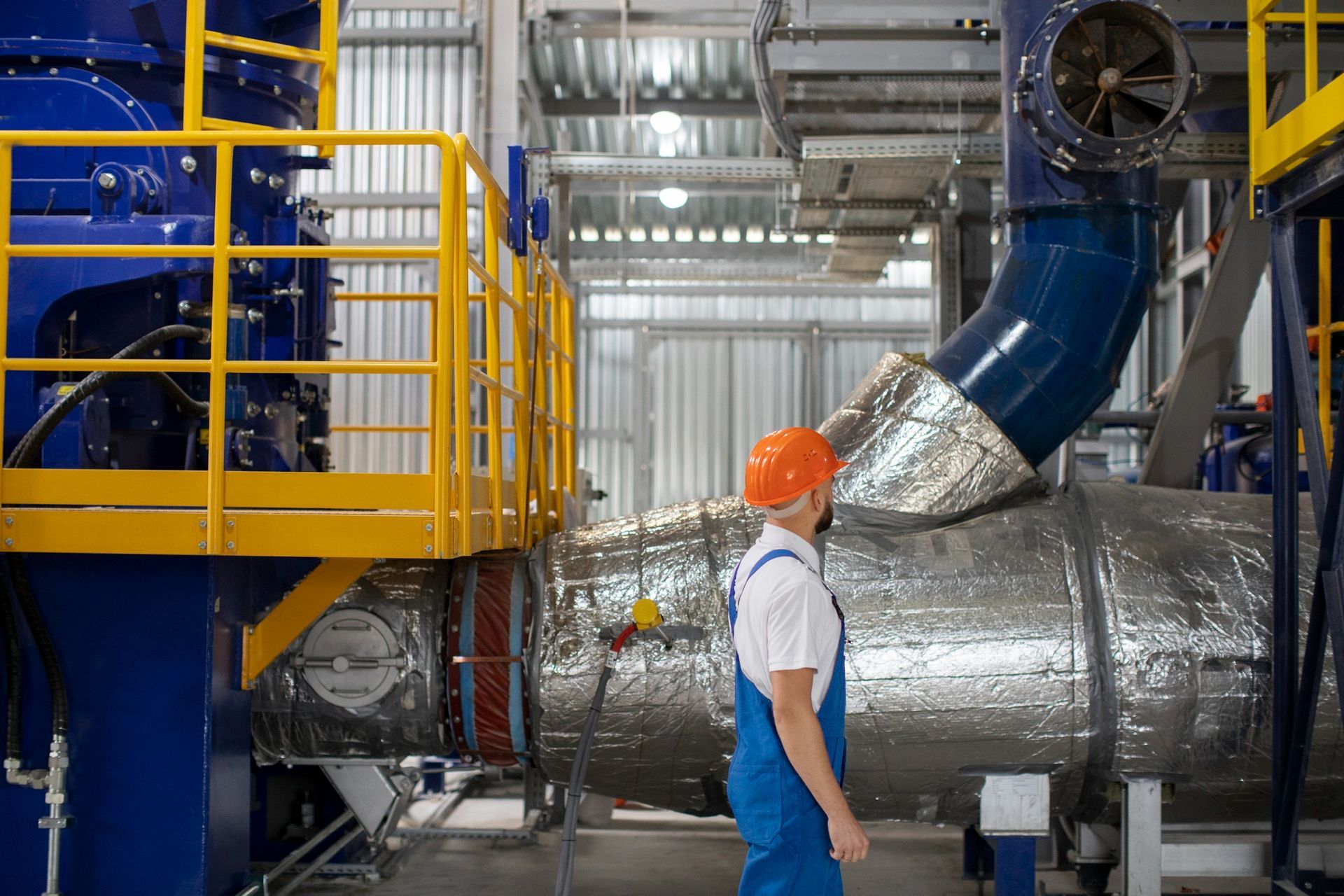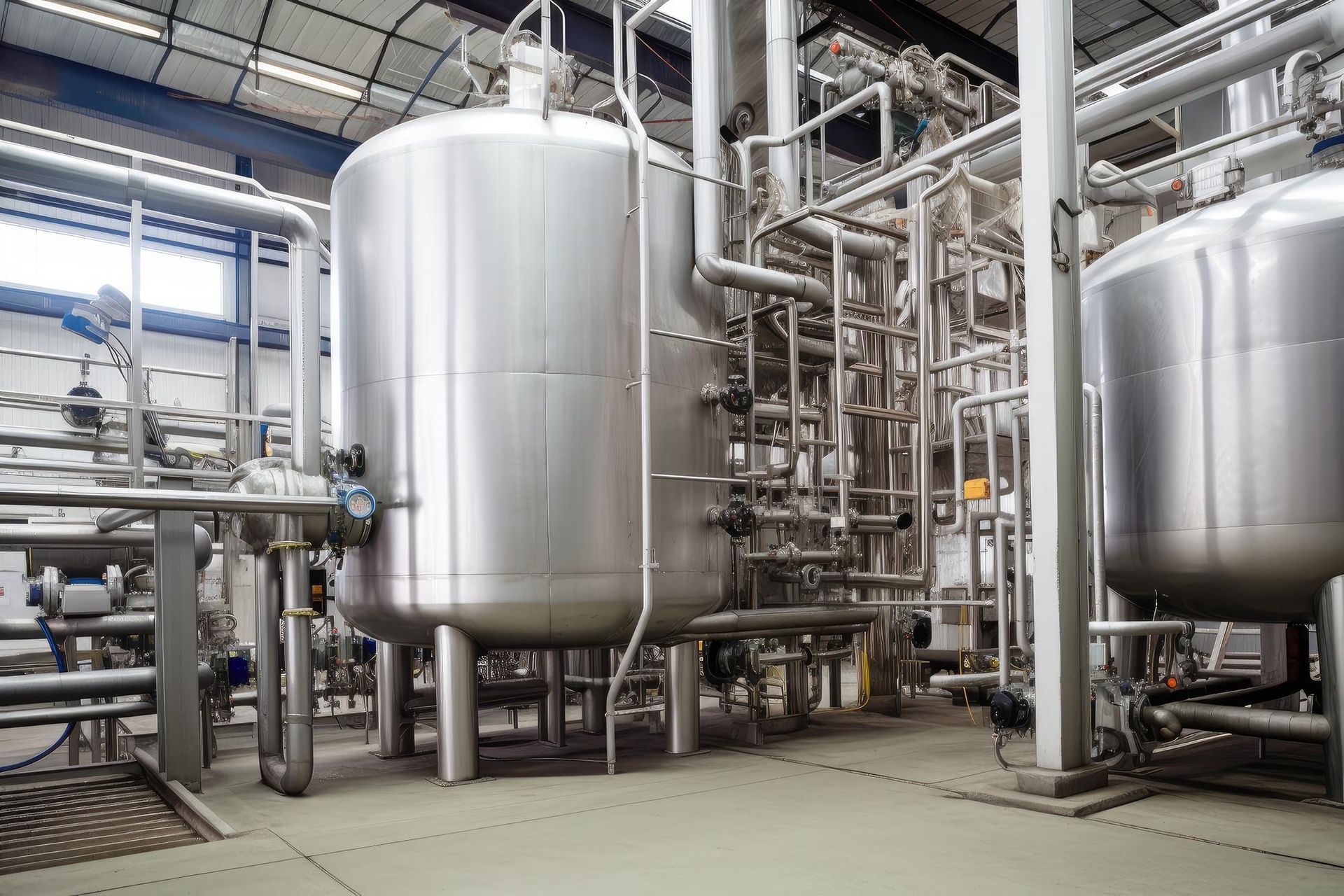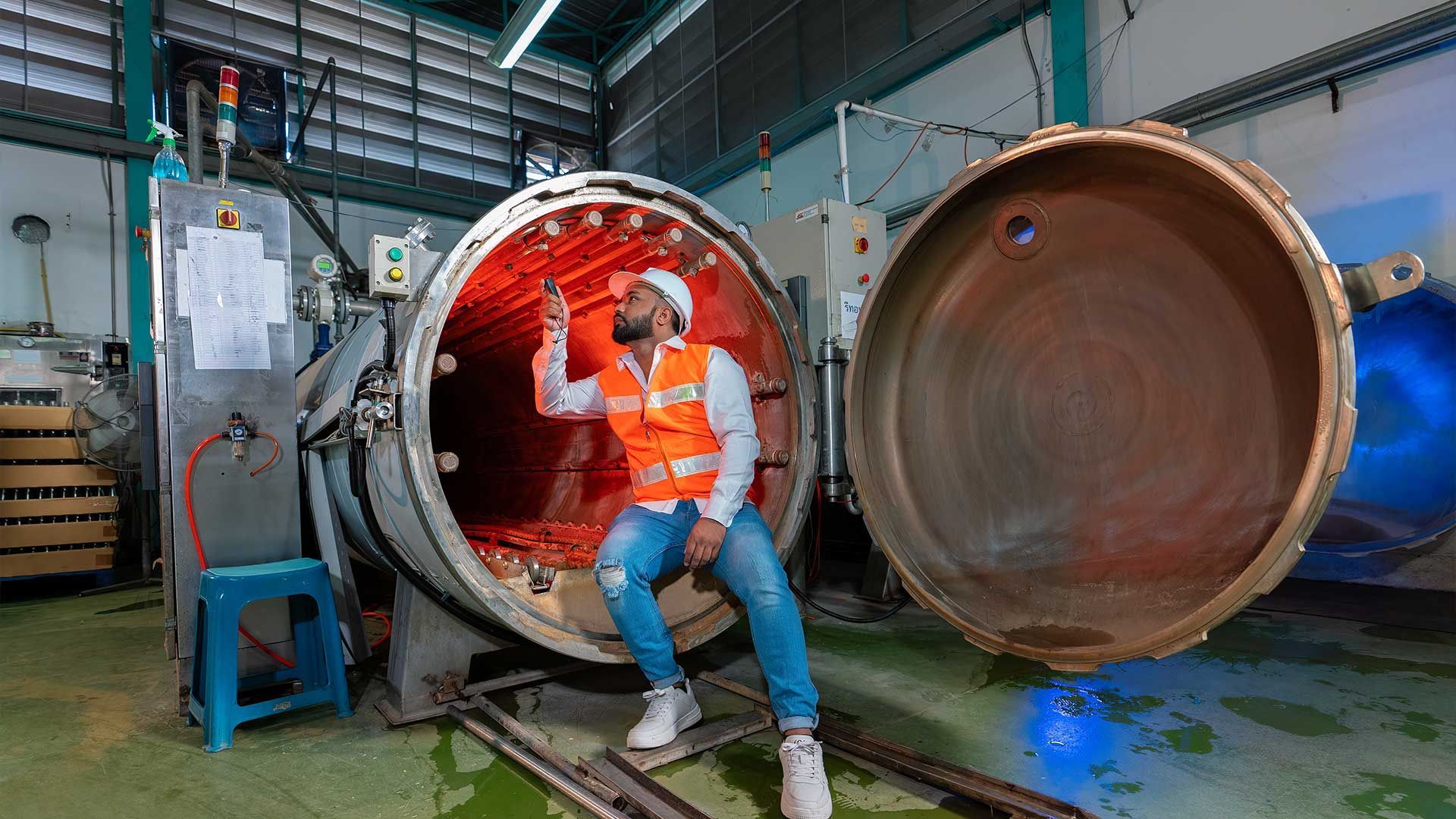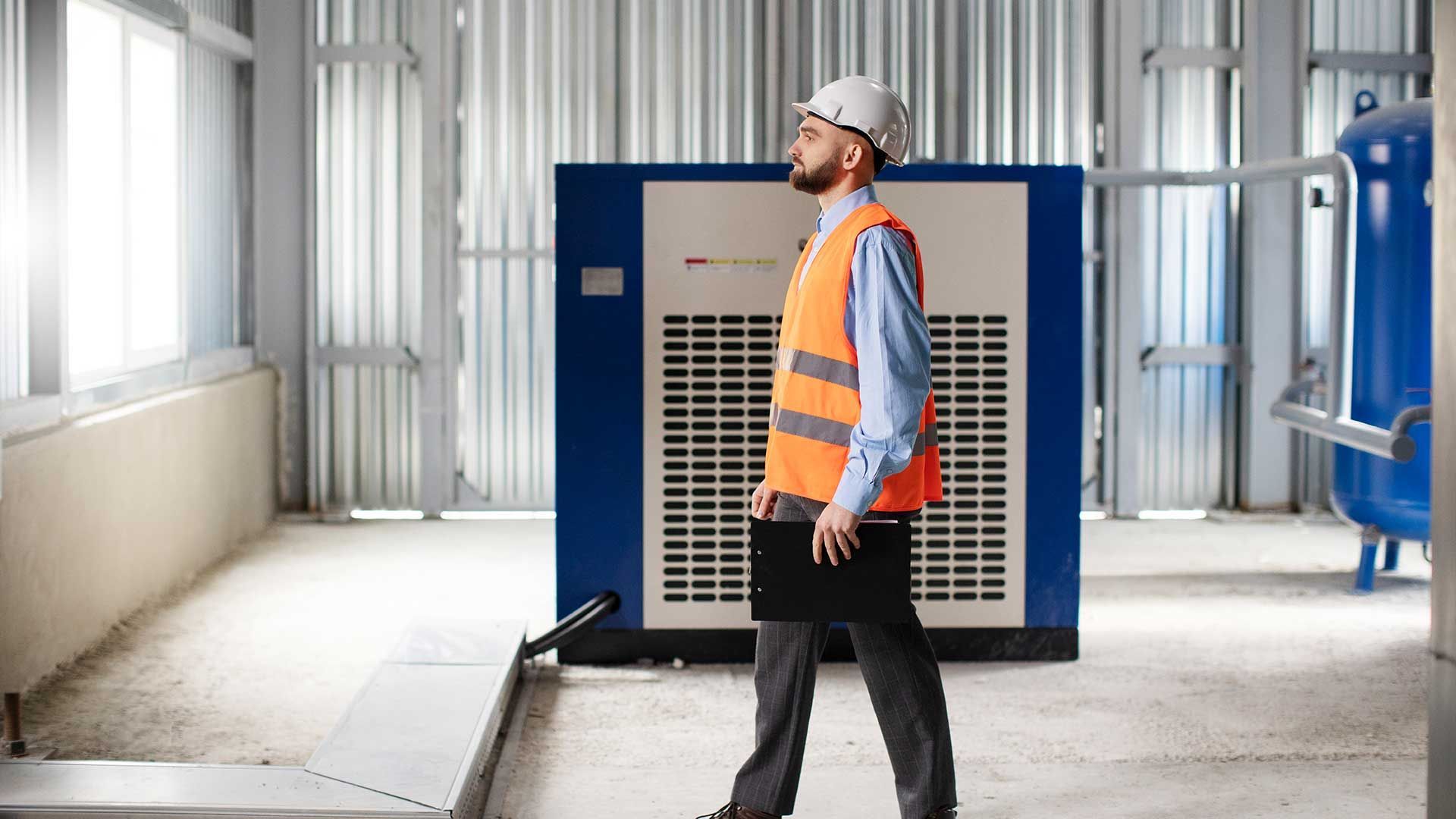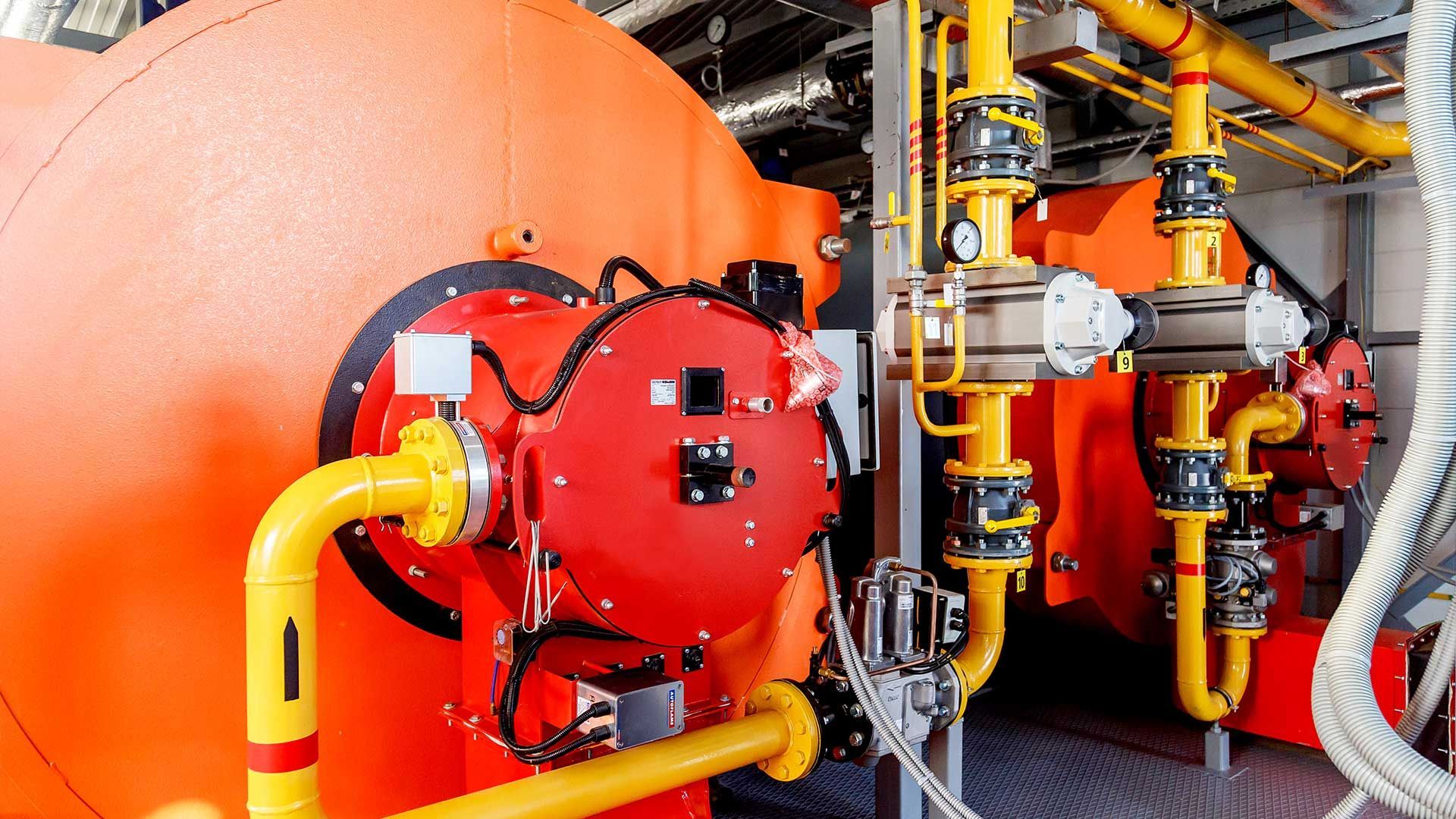5 Ways Industrial Boilers Are Revolutionizing Manufacturing
In the heart of every manufacturing plant, an unsung hero works tirelessly, providing the essential steam or heat required for myriad industrial processes. This hero is none other than the industrial boiler, a cornerstone in manufacturing that has evolved significantly over the years. Its advancements are not just about steam and heat anymore; they are revolutionizing the manufacturing industry in ways that were unimaginable a few decades ago.
5 Ways Industrial Boilers Are Revolutionizing Manufacturing
Enhanced Efficiency and Productivity
The journey of the industrial boiler into the heart of manufacturing efficiency is a story of innovation and ingenuity. These boilers, once simple steam generators, have transformed into complex systems that optimize every ounce of energy they consume. The secret lies in the design and technology embedded within modern boilers, which are crafted to extract the maximum amount of heat from the minimum amount of fuel. This is achieved through features such as advanced heat recovery systems, condensing technology, and improved insulation, which together ensure that very little energy is wasted.
But the impact of this efficiency goes beyond just energy savings. It's a catalyst for a more productive manufacturing process. Consider a food processing plant where steam is essential for cooking and sterilization, or a textile factory where it's used in dyeing and treatment processes. In these contexts, the efficiency of the boiler directly influences the speed and quality of production. When boilers operate at peak efficiency, they can produce steam more rapidly and consistently, ensuring that production lines never miss a beat. This not only boosts output but also enhances the quality of the end product, as there is less variation in the process conditions.
Moreover, the move towards more efficient boilers is paving the way for smaller, more compact designs. This reduction in size and weight means that boilers can be installed in smaller spaces, reducing the initial capital outlay for new plants and making it easier for existing facilities to upgrade their boiler systems without extensive modifications.
Integration with Renewable Energy Sources
The integration of industrial boilers with renewable energy sources is perhaps one of the most exciting developments in the field. This shift is driven by a growing recognition of the need for sustainable manufacturing practices and the increasing availability and affordability of renewable energy technologies. Biomass boilers, for example, use organic materials like wood chips, agricultural waste, and even municipal waste as fuel. This not only provides a use for materials that would otherwise go to waste but also significantly reduces greenhouse gas emissions compared to fossil fuel-based boilers.
Solar thermal energy is another frontier where industrial boilers are making strides. By using solar collectors to convert sunlight into heat, which is then used to produce steam, these systems can significantly reduce the need for traditional fuels, especially in sunny regions. Moreover, the integration of solar thermal systems with conventional boilers can provide a reliable and continuous supply of steam, with the solar system covering daytime operations and the boiler kicking in during cloudy periods or at night.
The advent of waste-to-energy technology is also revolutionizing how industrial boilers contribute to a circular economy. In industries that produce a significant amount of waste, such as the paper and pulp industry or food processing, waste-to-energy boilers can turn by-products and waste into valuable steam and electricity. This not only helps in managing waste more effectively but also turns an expense into an opportunity, as the energy produced can be used on-site or sold back to the grid.
In each of these examples, the key to successful integration lies in sophisticated control systems that can manage the complexities of working with variable fuel sources and ensure consistent boiler performance. These systems, often powered by advanced software and sensors, can adjust the operation of the boiler in real time to changes in fuel quality or energy demand, ensuring optimal efficiency and reliability.
Advanced Control and Automation Technologies
The integration of advanced control and automation technologies in industrial boilers represents a leap forward in operational efficiency and reliability. These systems, equipped with cutting-edge sensors and control algorithms, allow for real-time monitoring and adjustment of boiler operations. This capability ensures optimal combustion efficiency, reduces fuel consumption, and minimizes emissions, all of which contribute to a more sustainable manufacturing process.
The heart of this revolution lies in the Internet of Things (IoT) and Artificial Intelligence (AI). IoT enables a network of connected devices to communicate and exchange data, providing a comprehensive overview of boiler operations. This connectivity allows for remote monitoring and control, enabling operators to respond quickly to any changes in performance or conditions. AI takes this a step further by analyzing the data collected to predict potential issues before they arise, schedule maintenance to avoid downtime, and even optimize the boiler's operation based on patterns in demand and fuel availability.
These technological advancements not only enhance the efficiency and reliability of boiler operations but also significantly improve the safety of manufacturing environments. By providing real-time data and predictive insights, they allow for proactive measures to prevent accidents and ensure that the boiler operates within safe parameters.
Contribution to Waste Reduction and Circular Economy
Industrial boilers are increasingly becoming a key player in the drive towards waste reduction and a circular economy within the manufacturing sector. By utilizing waste materials as a source of fuel, these boilers are turning what was once considered a disposal problem into a valuable resource. This approach not only reduces the environmental impact associated with waste disposal but also decreases reliance on traditional, often non-renewable, fuel sources.
In industries such as paper and pulp, food processing, and chemical manufacturing, where significant amounts of waste are generated, the adoption of waste-to-energy boiler systems has shown remarkable benefits. These systems can efficiently convert a wide range of waste materials, including industrial by-products, agricultural residues, and even municipal waste, into steam and electricity. This not only supports the operational needs of the manufacturing plants but also contributes to the local energy grid, showcasing a practical implementation of circular economy principles.
The impact of these systems extends beyond just energy production. By valorizing waste materials, they encourage more sustainable production practices, reduce the burden on landfills, and can significantly lower the carbon footprint of manufacturing activities, aligning with global sustainability targets and environmental regulations.
Improved Safety and Compliance
The advancements in industrial boiler technology have brought about significant improvements in safety and compliance, two critical aspects of manufacturing operations. Modern boilers are equipped with an array of safety features, including automatic shut-off mechanisms, pressure relief valves, and advanced fire protection systems, all designed to mitigate the risks associated with high-pressure steam generation.
Furthermore, the integration of digital monitoring systems provides continuous oversight of
boiler operations, enabling immediate detection of any anomalies or deviations from normal operating conditions. This real-time monitoring capability, coupled with automated control systems, ensures that any potential safety issues are addressed promptly, often before they can escalate into serious incidents.
Compliance with environmental regulations is another area where these technological advancements have made a substantial impact. As governments and regulatory bodies worldwide tighten emissions standards and implement stricter environmental policies, the ability to closely monitor and control emissions from
industrial boilers has become crucial. Advanced control technologies enable precise adjustments to combustion processes,
reducing emissions of pollutants such as NOx, SOx, and particulate matter, and ensuring that manufacturing facilities remain in compliance with evolving environmental regulations.
Conclusion
In conclusion, the role of the industrial boiler in manufacturing has evolved from a mere provider of heat and steam to a key player in efficiency, sustainability, and innovation. As these boilers continue to adapt and integrate with cutting-edge technologies, their impact on the manufacturing industry will only grow, paving the way for a more efficient, sustainable, and safe future. At Boiler Technologies Unlimited, we are at the forefront of this evolution, offering unparalleled service and expertise in Lithia, FL. Our commitment to quality, innovation, and customer satisfaction makes us the go-to service provider for all your industrial boiler needs. Whether you're looking to upgrade to a more efficient system, integrate renewable energy sources, or ensure your operations comply with the latest safety standards, we have the skills and experience to help. Give us a call at 813-469-7733, and let us help you harness the full potential of modern industrial boiler technologies for a more productive and sustainable manufacturing process.


